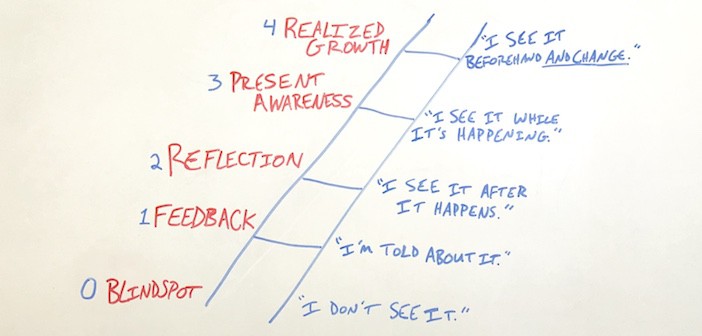As a part of my MBA program, I dedicated the past five days to the study of Coaching. While I have studied Leadership on my own and in the classroom, this was my first learning experience focused solely on Coaching. (Many thanks to Dr. Deborah Roebuck for her incredibly engaging and insightful teaching.)
The term “coach” is used frequently in sports and organizations but rarely is it correctly practiced. Whether it be with a staff team, volunteer team, or even your child”s soccer team, getting coaching right is of great importance to the long-term development of the people you lead. To fully understand what coaching is, we must first understand what coaching is not…
Coaching is not counseling. Counselors help individuals resolve specific behavioral problems and life issues. It focuses on correction and is directive in style. Counseling is important and a necessary role in some situations. But it is a different role from that of coaching.
.
Coaching is not mentoring. While the line between mentor and coach can appear to be thin, there is a clear difference between the two. Mentors help individuals learn new skills and abilities. They are directive in style, clearly instructing the mentee. There are situations in which mentoring is appropriate. But too often it serves as an inadequate substitute to coaching.
.
Coaching is unique in that it works with the coachee to recognize and cultivate his potential, whatever that may be. The coach provides support and encouragement as the coachee leads his own development, focusing on long-term personal growth rather than short-term solutions. A true coach never teaches. Instead he guides the coachee through a process of self-discovery that generates self-created plans for personal development. While counseling and mentoring certainly have their place, coaching is a necessity for any leader seeking to help his team members tap into their fullest potential.
.
It is impossible to distill 50 hours of learning into a single post. But the following points provide a few basic principles that can help any leader get started as a coach…
.
- Coaching involves a collaborative relationship
- Both the coach and coachee are equal partners
- This relationship requires that trust be earned by the coach
- Coaches generate awareness and responsibility
- With awareness, coachees better understand their circumstances
- With responsibility, coachees take ownership of their circumstances and the actions required for self-improvement
- Coaches listen first and speak later
- Coaching allows the coachee time to reflect on his own circumstances (generating awareness) and develop his own action steps (generating responsibility)
- Buy-in is strongest when the coachee develops ideas himself. When the coach offers observations and suggests action steps, he steals the opportunity for ownership away from the coachee.
- Embrace the silence! (This is a tough one for me but I”m learning…slowly…)
- Coaches ask questions…then they ask more questions…and after that, they usually ask a few questions
- In order to generate awareness and responsibility, a coach must guide the coachee through his own thought process rather than complete the process for him. Ask “What…?”, “When…?”, “Who…?”, and “How…?” to move the thought process forward without thinking for the coachee.
- Notice that “Why…?” is not mentioned above. “Why” questions tend to put people on the defensive.
- Coaches guide the coachee to clear action steps for development. In our class, we utilized the GROW model by John Whitmore. It is a great structure for any coaching conversation…
- Goal: What are you trying to do? (Guide the coachee to a SMART goal)
- Reality: What is actually happening? (Guide the coachee to greater awareness of the circumstances)
- Options: What are the different things you could do? (Guide the coachee through a brainstorm of every possible action step)
- Will: What will you do? How committed are you? (Guide the coachee to select an action step and state his own responsibility for it. Again, make the action step SMART)
Unfortunately, coaching is a role that is underutilized by many church leaders who are more naturally wired for counseling and mentoring. But an intentional investment in coaching results in team members who are more aware of their circumstances and take on greater responsibility for their own development. I imagine that a focus on coaching could reduce the need for counseling and mentoring as team members learn how to better lead themselves.
.
Make it happen!
1. Which individuals on your team should you be coaching?
2. How can you begin guiding conversations to help them become further aware of their circumstances and more responsible for their growth?
3. When will you start?





4 Comments
Great post Ryan! I thought of this as I was reading your post
Teaching = Sharing information
Mentoring = Sharing experience
Consulting = Sharing advice
Counseling = Leading a client from dysfunctionality to functionality.
Coaching = Leading a coachee from functionality to potentiality. A strategic alliance formed between a coach and coachee in order to achieve his/her maximum level of success.-Kary Oberbrunner
Coaching is a big deal and what makes it powerful is that it can go up or down in an organization. Love the post.
Thanks, Tim! I agree, with mutual respect and appropriate insights, coaching can definitely be done from the top or bottom of an organization. I really like the definitions you provided via Kary Oberbrunner! Does he have an article or book that unpacks them further? I’d love to read more and pass it along.
His next book is due to come out in February of 2013 which has some coaching insights. His blog and website is also a good resource. http://www.karyoberbrunner.com
Awesome! Thanks!